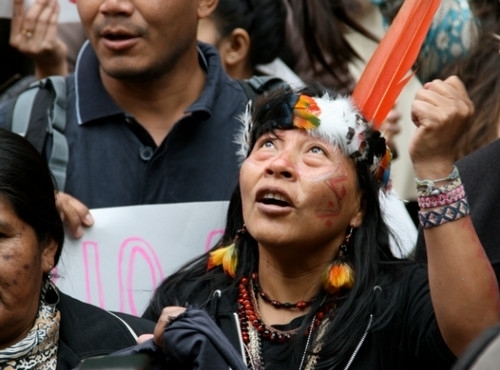
Human Rights Due Diligence The approach of human rights due diligence has received increasing attention from policymakers, businesses and civil society groups since the adoption of the UN Framework Respect, Protect and Remedy Framework in 2008 and its operational Guiding Principles on Business & Human Rights in 2011.
The 2011 UN Guiding Principles on Business & Human Rights promote the approach of human rights due diligence – business policies to identify, prevent and mitigate risks of adverse impacts on human rights in their operations, and to account for this. Following our collaboration on a 2012 report on this topic by a group of experts, in 2013 we published the briefing Human Rights Due Diligence – Policy measures for effective implementation. The paper proactively defines what human rights due diligence is, and how governments can incorporate this as a binding obligation for businesses into legal and regulatory frameworks. It refers to examples of rights violations in Peru, the Philippines, India, Colombia, and Cameroon, and to examples of existing regulatory practice in due diligence in France, Germany, Switzerland, the European Union, the United States, Peru, and India.
We are now in a crucial phase for the effectiveness of the Guiding Principles, where States must move to more clearly set out the expectation that businesses respect human rights throughout their operations, and take steps to protect against human rights abuse through effective legislation and regulations.
There is growing recognition that European companies trading in natural resources should ensure they are not contributing to human rights abuses or conflict. The European Commission has proposed a draft European regulation based on “a strategy for responsible trade in minerals from conflict zones […] intended to put an end to the use of revenues from mining to finance armed conflict” in March 2014.
CIDSE members recognise that one of the main challenges of the future EU initiative is to ensure it is applicable on the ground. Any initiative that does not fit the local reality and needs will fail to have a positive impact. It is of paramount importance for decision makers to be ambitious and promote binding rules in supply chain due diligence by companies concerning natural resources sourced from high-risk or conflict-affected areas.
To learn more, please also see the CIDSE-supported report Human Rights Due Diligence: The Role of States that was presented at the UN or our interview with Amol Mehra, Director of the International Corporate Accountability Roundtable (ICAR).
CIDSE has also published a briefing, The UN Protect, Respect, Remedy Framework and the Guiding Principles: Driving change?, as well as Agribusiness and Human Rights: Briefing for Social Movements
